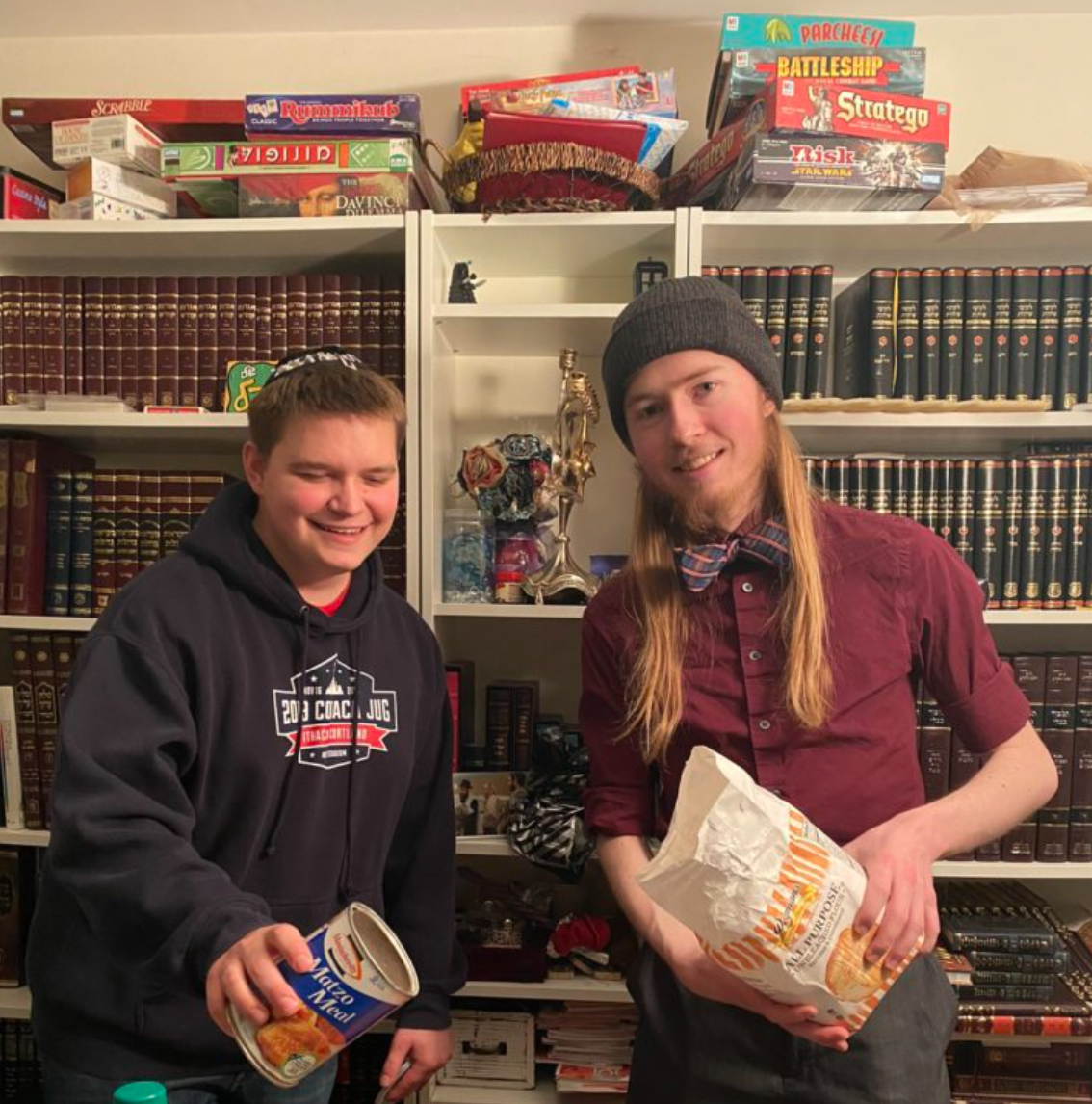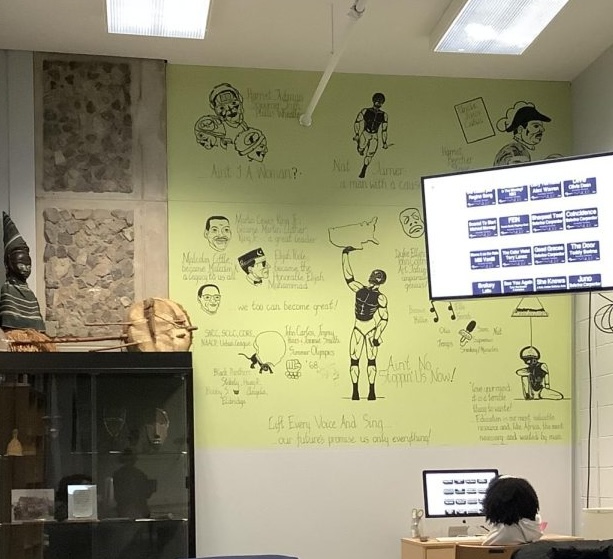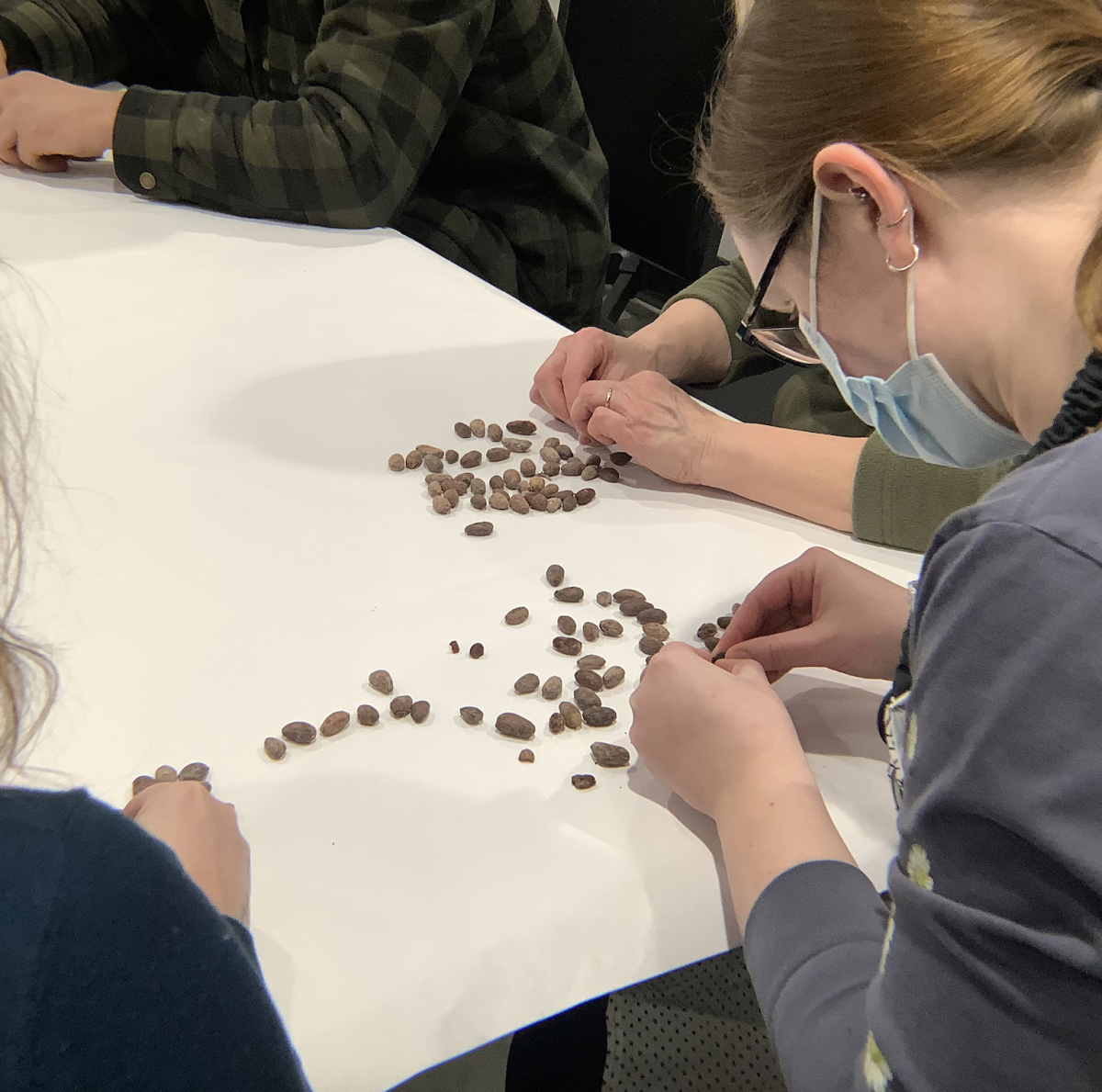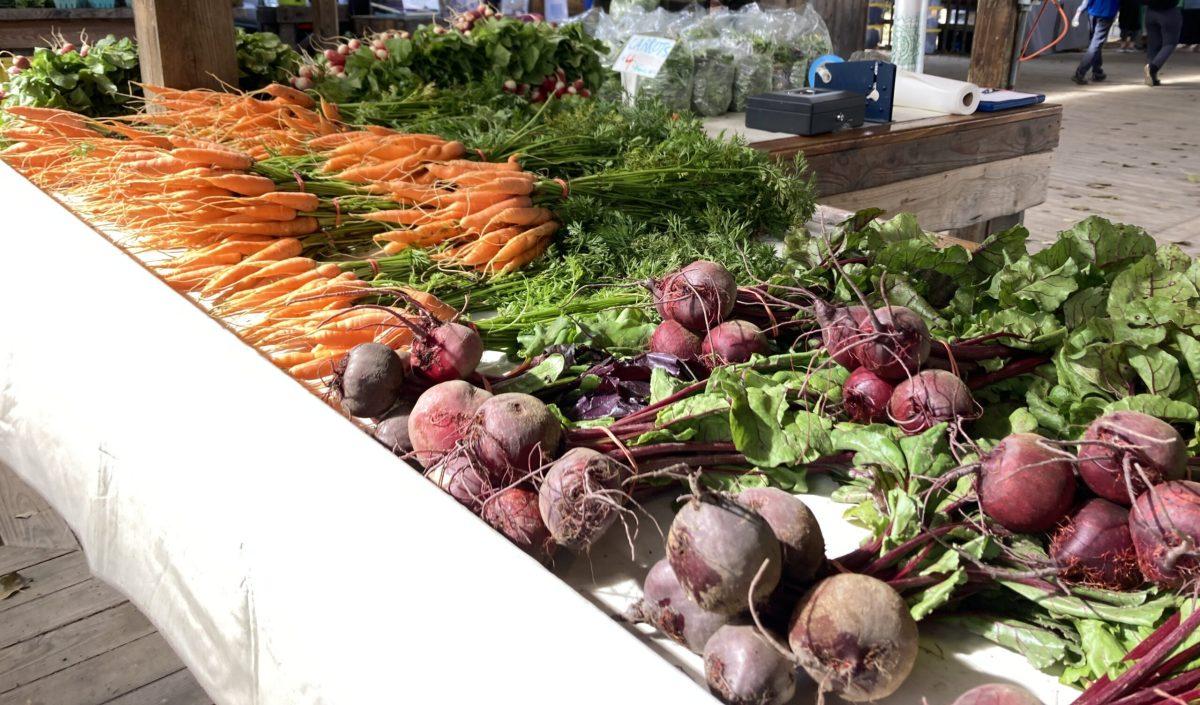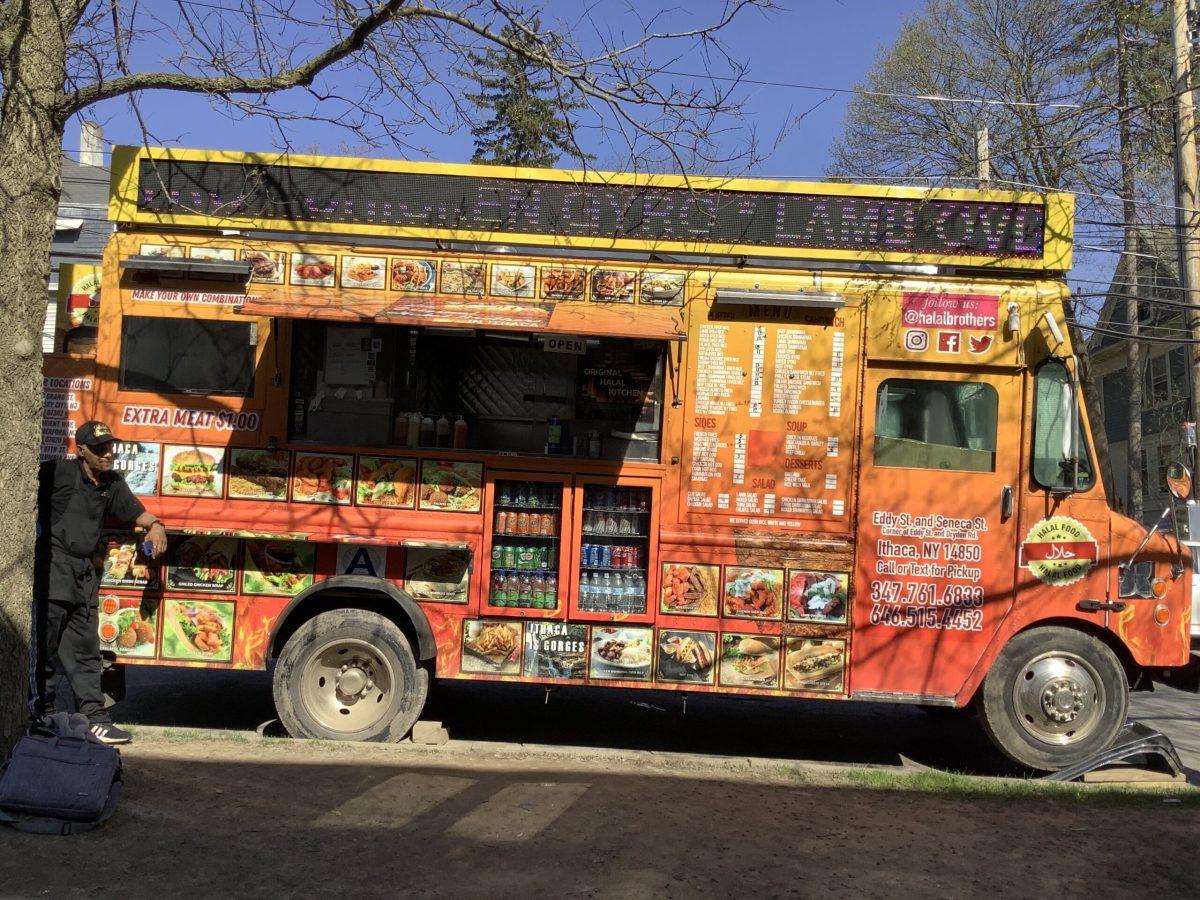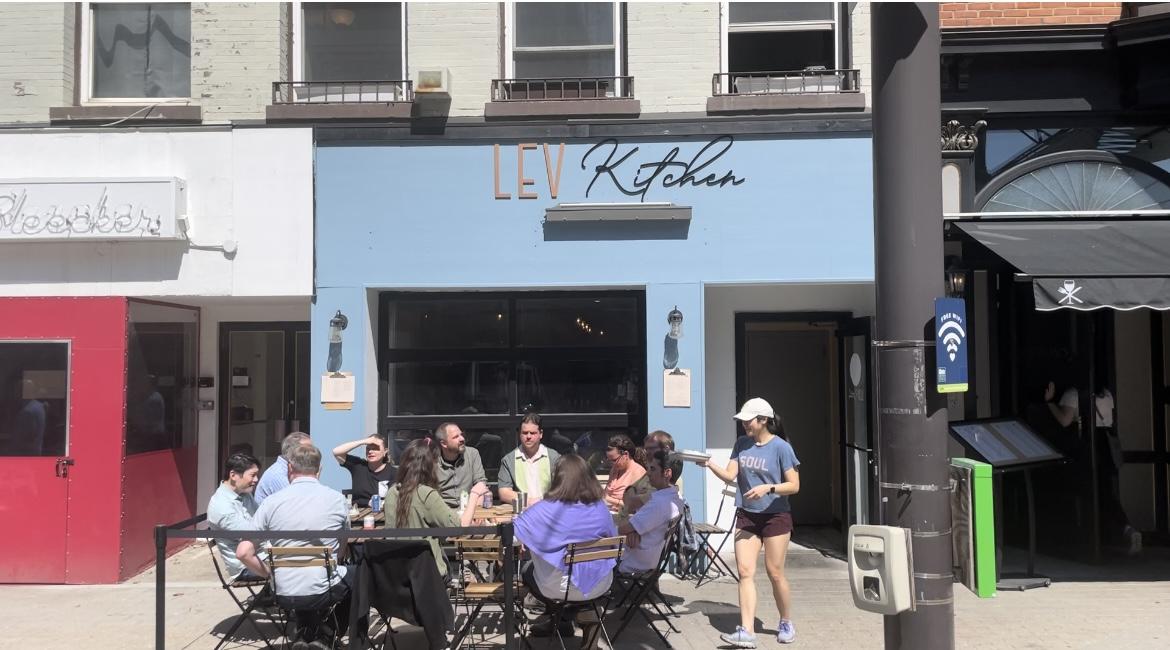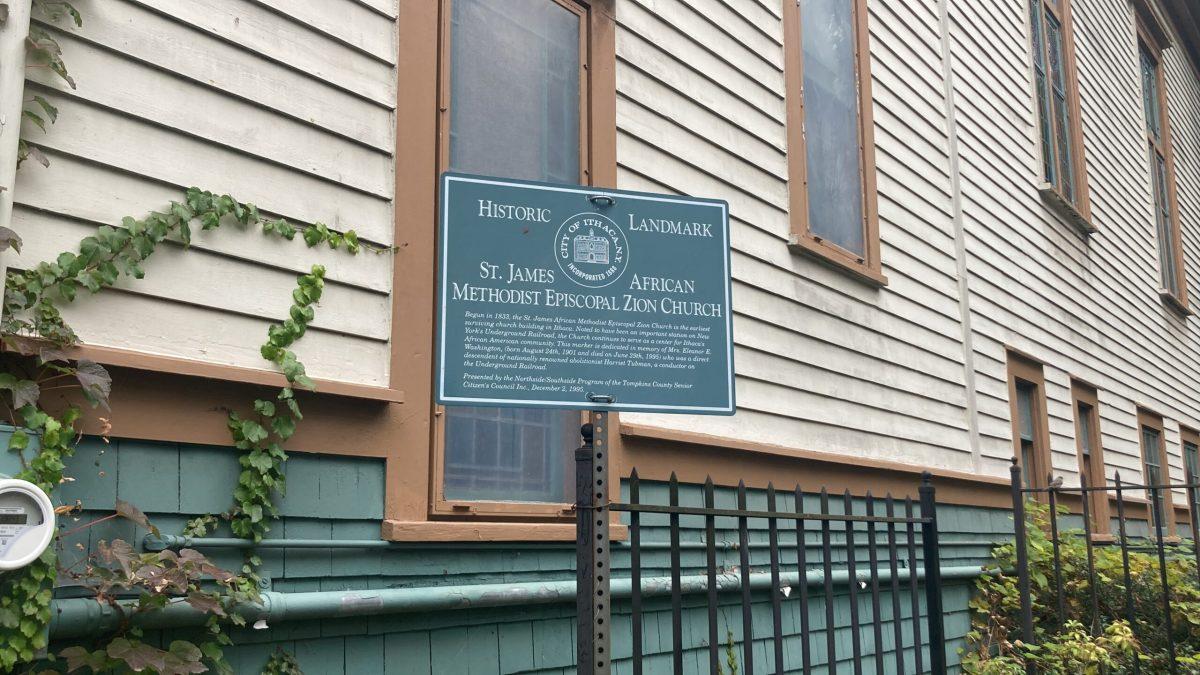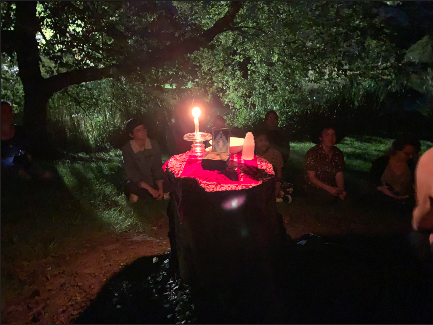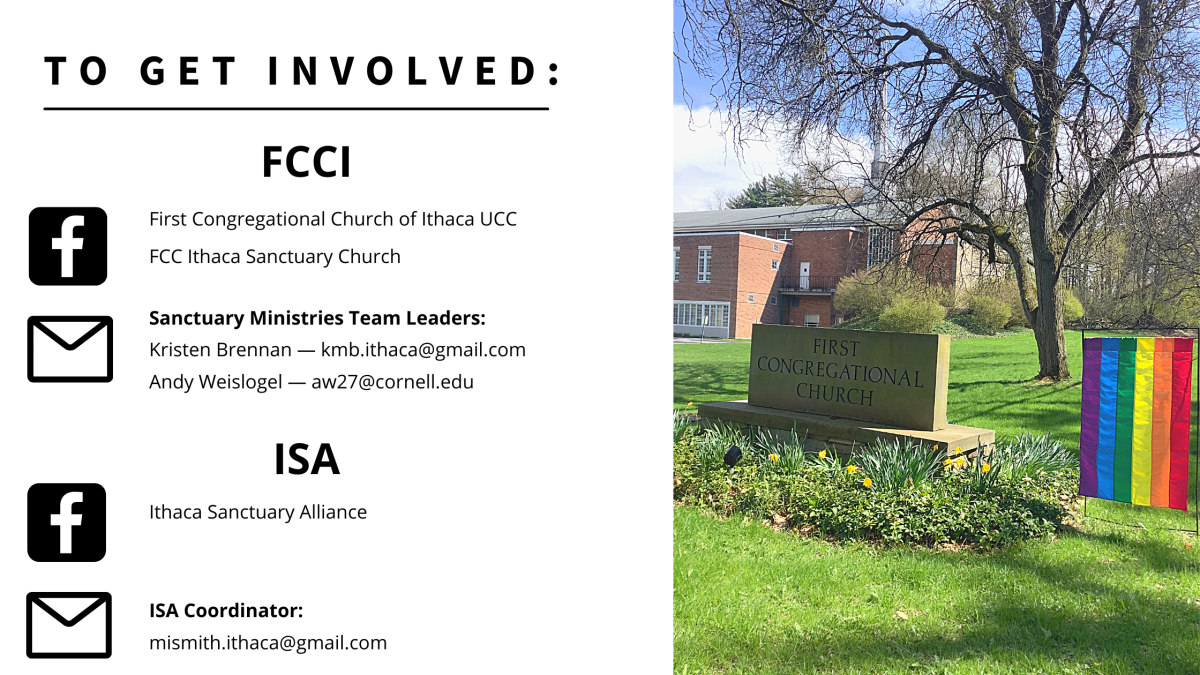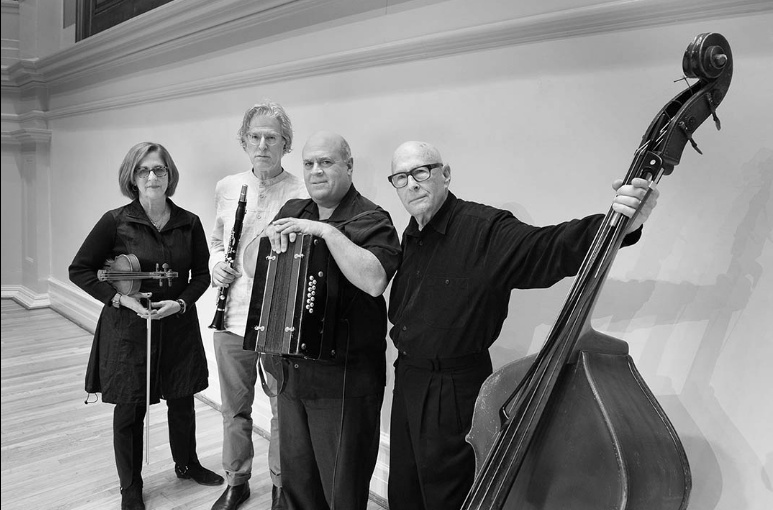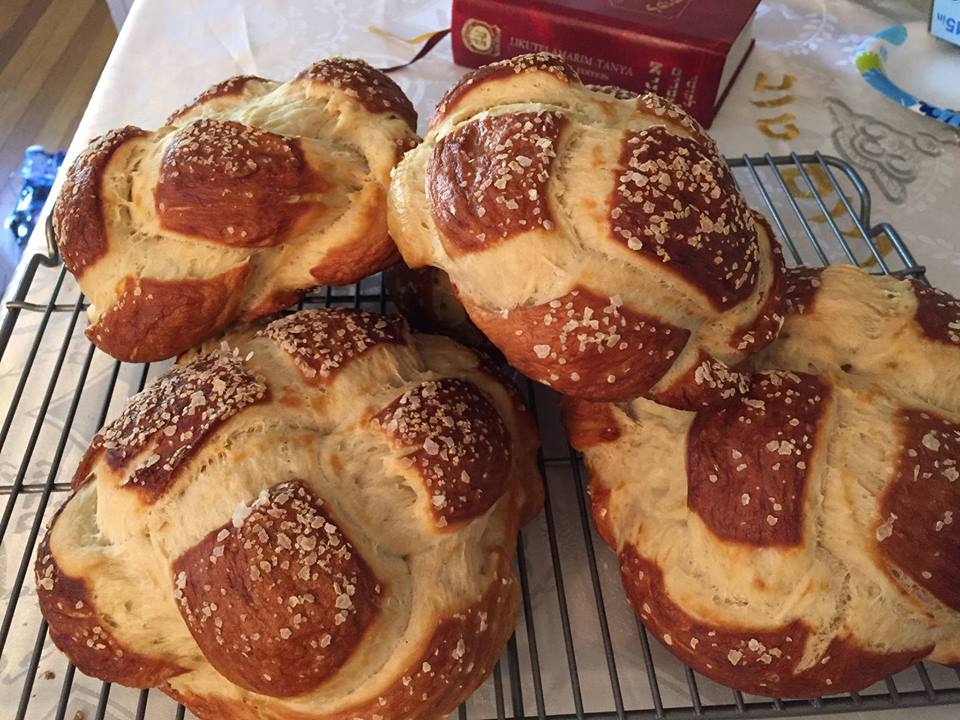
Before becoming president of the Ithaca College chapter of Chabad on Campus, Elias Elliot grew up in an untraditional Jewish household. His family celebrated Christmas and Easter. The only true connection Elliot had to Judaism was the knowledge of his Jewish ancestors and his great grandfather’s tefillin, which is a set of small black leather boxes containing verses from the Torah inside.
His interest in Judaism changed when he was invited to a friend’s Passover dinner in high school. Elliot said it was the first time he experienced a Jewish tradition. The connection he felt was so strong, according to Elliot, that he decided to find a Rabbi to guide him in connecting more to the religion when he got to college. That is when he met Rabbi Joshua Krisch and his wife Andi.
“The way that Chabad does all Jewish things is the same way that they have been done for thousands of years,” said Elliot. “It is really inspiring … I have a lot of respect for all of these old traditions and it is really amazing to see them happening around me.”
Max Powers, vice president of communications for the Ithaca College chapter, also said he also feels a stronger connection to Judaism, thanks to the Chabad community. Despite growing up in a traditional Jewish household, he became more observant as a freshman, after meeting Rabbi Krisch. Powers said he quickly became a regular at Chabad events, especially Shabbat dinners and the major holidays, like Passover and Rosh Hashanah meals.
Out of all the traditions that the Chabad offers students, the majority of them involve food in some capacity. From Hanukkah parties with jelly donuts to customary Shabbat dinners, Chabad provides a space for students to celebrate the holidays around their fellow Jewish peers. There have also been times when Cornell’s Chabad and Ithaca College’s Chabad joined forces to bridge the gap between the two campuses.
“Chabad is an organization that brings the Jewish community together,” said Powers. “We do the Friday meal where we celebrate and talk a little bit about the Torah, but mainly hanging [sic] out with friends and communicating on a Jewish level.”
In order to give back to the community and provide a space for students to give back to the emissaries — which are the Chabad families who are sent out to create chapters of the movement around the world — the Chabad of Ithaca College started the Kosher Cooking Club. The club meets every Thursday night to prepare the kosher food for the upcoming Shabbat dinner and Saturday lunch. While there are a variety of recipes that they rotate through, there are a few elements that remain. There is always challah bread and matzo ball soup, each with their own significance in the Jewish religion.
Each week, the Rabbi blesses the challah bread in front of attendees, in a prayer called hamotzi. After making the blessing, the tradition is to cut slices of bread, dip them in salt, and share them around the table so that everyone takes part in the blessing.
“The braids are what we weave our community out of,” said Powers. “And we eat it to symbolize friendship.”

Everyone is welcome to attend any event at Chabad, whether they are Jewish or not, and although the majority of attendees are IC students, the house is open to anyone in the Ithaca community. There have been holidays when members from other Jewish communities found themselves in Ithaca, and when they reached out, Rabbi Krisch and his wife opened their home to those guests.
Rabbi Krisch said Chabad is a philosophical movement and social revolution that emphasizes the spiritual over the mundane and the mystical over the legal while celebrating the innate worth of every individual. With a mission to strengthen the Jewish community, there are Chabad houses in every state, as well as in various countries around the world, including Uganda and Vietnam.
“Chabad emissaries are the sole Jewish clergy members among the citizenry, the sole source of kosher food for an entire community, the only Jews in town who can read Hebrew, lead services, and conduct Jewish rituals,” said Krisch. “If a community has even one Jewish member, it would benefit from Chabad’s presence.”
In addition to the permanent Chabad houses found worldwide, there are 250 Chabads on college campuses. They serve similar purposes, providing traditional Jewish spaces for students and often establishing a community from the ground up.
Chabad emissaries do not receive salaries or reimbursements. They start their families and move their homes away from larger Jewish communities. While the work they do often feels lonely, according to Rabbi Krisch, they believe that what they are doing is more important and worth the sacrifices.
“The only reward that any Chabad emissary seeks or expects is attendance. When you sacrifice everything to change the world, the world does not feel changed if you plan an event and nobody shows up,” said Krisch. “If a student ever wants to give back to his or her Chabad emissary, the answer is simple. Participating. You vote with your feet, and you support Chabad by showing up.”
Rabbi Krisch noted how the philosophy emphasizes the fundamental oneness of all creation, and the underlying unity of all people, which is why Chabad emissaries open their homes and spend their personal money to provide a full meal.
“When our Shabbat table is full of unfamiliar faces, we do not see strangers. We see family,” he said. “We believe that gathering apparent strangers and demonstrating their similarities — over kosher meals that are designed to spiritually improve the world — creates community, repairs the world both spiritually and physically, and helps individuals live better lives.”
https://www.youtube.com/watch?v=UbQtflXj_QE&t=3s

